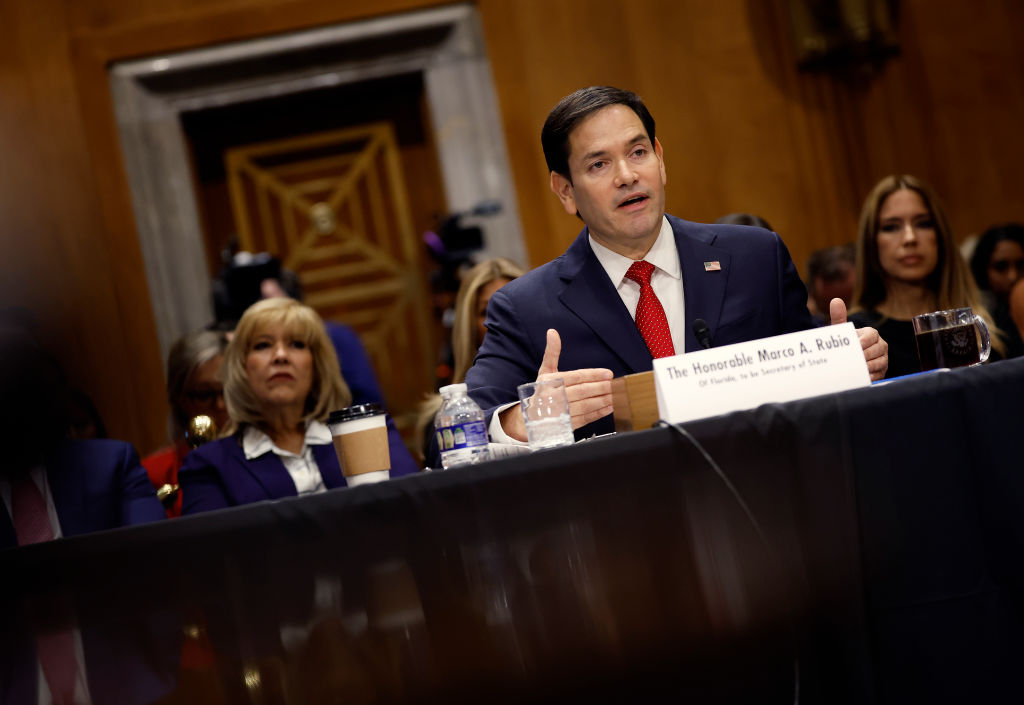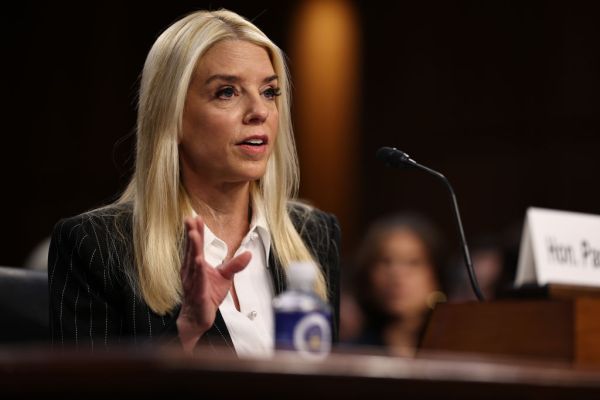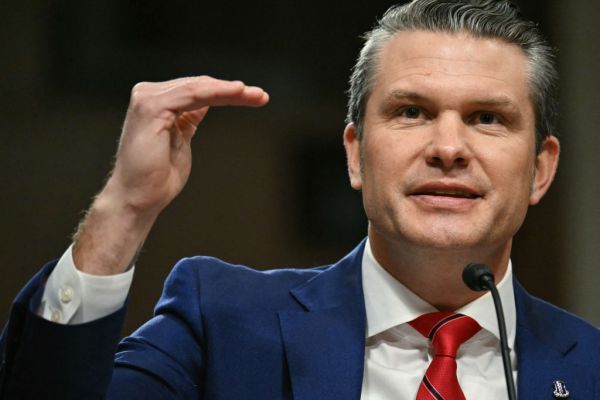Happy Friday! We were sad to learn of the death of legendary baseball play-by-play announcer and former player Bob Uecker, who died at age 90 Thursday. Uecker—whose voice was the summer soundtrack to many a Brewers fan through the decades—was the rare non-national commentator who transcended not just his own team but the sport itself. Over the decades he racked up plenty of pop culture highlights, but this TV ad for Miller Lite in 1983 will remain one of our favorites. Farewell to a legend.
Quick Hits: Today’s Top Stories
- After an eleventh-hour crisis threatened to derail the U.S.-announced deal between Israel and Hamas yesterday, Israeli Prime Minister Benjamin Netanyahu confirmed Friday that the agreement will go forward as planned. The phased ceasefire and hostage release deal was signed in Doha, Qatar, Thursday night and is scheduled to take effect on Sunday afternoon. National Security Minister Itamar Ben-Gvir—a far-right member of Netanyahu’s coalition—formally threatened on Thursday to withdraw his party from the government if the deal goes through, but the move alone wouldn’t topple the ruling coalition. The Israeli security cabinet is set to meet on Friday to hold a vote on the deal, but the full cabinet is not expected to convene until Saturday night.
- China’s National Bureau of Statistics reported Friday morning that the country’s gross domestic product grew by 5 percent last year, bolstered by rising exports and robust investment. Economic activity was particularly strong in the final months of the year—the statistics agency said that the Chinese economy grew 5.4 percent year-over-year in Q4 2024, exceeding economists’ expectations. But the top-line figures, if accurate, belie other indicators pointing toward a weaker economic performance, including low consumer spending and continued fallout from the country’s real estate crash.
- The Treasury Department on Thursday leveled sanctions against the leader of the Sudanese Armed Forces, Gen. Abdel Fattah al-Burhan, over his military’s alleged indiscriminate attacks on civilian sites and denial of food aid as a war tactic. Also on Thursday, the New York Times reported that al-Burhan had, according to U.S. officials, used chemical weapons on at least two occasions during his forces’ ongoing civil war against the Rapid Support Forces (RSF) paramilitary group. The revelations followed Secretary of State Antony Blinken’s announcement last week formally accusing the RSF of committing genocide in Sudan for ethnically motivated attacks in Sudanese territory under its control.
- President Joe Biden issued an executive order on Thursday aimed at bolstering federal agencies and contractors’ safeguards against cyberattacks. The new rules require software firms selling to government agencies to demonstrate that their products meet basic cybersecurity requirements and give the federal government more authority to sanction hackers who attack critical infrastructure, among other things. The action followed news last month of a major hack targeting the Treasury Department, in which—Bloomberg News reported Thursday—Treasury Secretary Janet Yellen’s computer was breached.
- Former New York Mayor Rudy Giuliani reached a settlement on Thursday in the $148 million defamation lawsuit against him, avoiding trial. The former Trump attorney was ordered in October to turn over personal assets to two Georgia election workers who won a defamation suit against him after he falsely claimed they committed election fraud in the 2020 elections. Details of the settlement have not been disclosed, but Giuliani said on X that he would retain his New York and Florida properties and personal belongings. “This resolution does not involve an admission of liability or wrongdoing by any of the Parties,” he added. “I am satisfied with and have no grievances relating to the result we have reached.”
- Firefighters continued to make slow progress against wildfires in and around Los Angeles on Thursday, as high winds abated. The Palisades and Eaton fires—which combined currently cover roughly 38,000 acres—have been 27 percent and 55 percent contained, respectively. At least 27 people have died in the natural disaster that began last week.
Trump’s Nominees Face the Music

This week’s Senate’s confirmation hearings for Donald Trump’s first wave of Cabinet-level nominees got off to an uncharacteristically smooth start, as Trump’s picks flexed their loyalty to the president-elect and fended off Democratic attacks—or, at least, avoided shedding GOP votes.
A few fiery exchanges notwithstanding, Trump’s high-profile picks—Pete Hegseth, the secretary of defense nominee; Pam Bondi, the pick for attorney general; and Marco Rubio, the secretary of state nominee—all appeared poised to coast through the Senate despite significant Democratic opposition.
The raft of lower-profile hearings included: John Ratcliffe (CIA director), Sean Duffy (transportation secretary), Chris Wright (energy secretary), Russell Vought (director of the Office of Management and Budget), Doug Burgum (interior secretary), Scott Turner (housing secretary), Lee Zeldin (EPA administrator), and Kristi Noem (homeland security secretary), whose hearing is scheduled for today.
The first hearing, for Hegseth, was also the most contentious thus far. Tapped to lead the country’s largest government agency at the Pentagon, the former Fox News host and Army veteran faced Democratic lines of questioning about his qualifications, which—aside from roughly six years of active-duty service—consisted of heading up small veterans’ nonprofits and mounting a losing campaign for one of Minnesota’s U.S. Senate seats in 2012.
Hegseth’s thin resume perhaps contributed to at least one awkward moment during the four-hour hearing before the Senate Armed Services Committee, as Sen. Tammy Duckworth—a Democrat from Illinois and Army veteran herself—tested his knowledge of the Association of Southeast Asian Nations, or ASEAN, a 10-country alliance in the Indo-Pacific. “Can you name the importance of at least one of the nations in ASEAN?” she asked. “I know we’ve got allies in South Korea, and Japan, and in AUKUS with Australia,” he replied. None of those countries are in ASEAN.
Asked by TMD after the hearing whether Hegseth had provided any evidence of his qualifications, Duckworth responded, “No, I don’t think he was convincing at all, but he did what he needed to do with filibustering as much as possible.” Meanwhile, Sen. Mike Rounds, a Republican from South Dakota, told reporters that Hegseth needs to be prepared to handle issues pertaining to the “day-to-day operations of the Department [of Defense].” Not exactly a ringing vote of confidence, but Rounds has expressed support for Hegseth’s nomination.
Concerns about Hegseth’s character also dominated the hearing. Democrats pressed him on allegations of alcohol abuse and sexual assault, both of which came to light after Trump announced his nomination in November. Hegseth reiterated his denial of the latter accusation, claiming that his 2017 encounter with a woman in California—who filed a police report in which she alleged he assaulted her—was consensual. Democratic committee members were quick to note that Hegseth’s best defense was confessing to an extramarital affair.
“You have admitted that you had sex while you were married to wife two, after you just had fathered a child by wife three,” said Sen. Tim Kaine, a Democrat from Virginia. “Why didn’t you inform the commander-in-chief and the transition team of this very relevant event?”
At least one Republican committee member—Sen. Joni Ernst—agreed that it was relevant. Perhaps Hegseth’s most critical test came when he was questioned by the Iowa Republican and fellow Army veteran. Ernst has spoken publicly about her experiences as a survivor of rape and sexual assault, and many observers speculated that she might be particularly troubled by the allegations against Hegseth, as well as his previously stated opposition to women serving in combat roles. She was also one of only a few Republicans not to promise her vote to Hegseth in advance.
But those hoping for Ernst to block Hegseth were likely disappointed. Ultimately, she appeared satisfied by his vow to appoint an official in charge of investigating sexual assault and his softened stance on women in combat roles. Ernst told a Des Moines radio station on Tuesday that she planned to vote in favor of his confirmation.
Wednesday brought the second big-ticket nominee: Trump’s pick for attorney general, Pam Bondi. The former Florida attorney general did not face nearly as many questions about her character as Hegseth. Rather, Democrats on the Senate Judiciary Committee focused on her perceived lack of independence from the president-elect. Bondi served as a lawyer for Trump during his first impeachment and traveled to Pennsylvania to support his attempt to overturn the 2020 election, earning a reputation as a Trump loyalist. Asked repeatedly about whether Trump lost the election in 2020, she obfuscated, only saying that “Joe Biden is the president of the United States.”
Throughout her hearing before the committee, Democrats highlighted concerns about political pressure on the historically independent Department of Justice. “What would you do if your career DOJ prosecutors came to you with a case to prosecute, grounded in the facts and law, but the White House directs you to drop the case?” asked Sen. Chris Coons, a Democrat from Delaware. “Senator, if I thought that would happen, I would not be sitting here today. That will not happen—will not happen,” Boni responded. (Jeff Sessions might beg to differ.)
Bondi faced no such hurdles from GOP committee members. Overwhelmingly, they focused on the need to combat what they viewed as the political weaponization of the Justice Department. “In more than two centuries of our nation’s history, no president had previously been indicted, no president had previously been prosecuted, until the Biden-Harris White House came along,” said Sen. Ted Cruz, a Republican from Texas. “And two assassination attempts,” Bondi added.
“Will you put a stop to the use of FBI or Department of Justice resources to try and recruit informants and spies into Christian churches, or any church or house of worship in this country, on the basis of nothing more than faith?” asked Sen. Josh Hawley, a Republican from Missouri, referring to an FBI scheme to place an informant in a Catholic church to befriend a suspected extremist. Bondi enthusiastically agreed.
Democrats had their own concerns about DOJ’s weaponization, namely about FBI director nominee Kash Patel’s list of “government gangsters” whom he has intimated would be prosecuted, including former FBI director Christopher Wray and our own Sarah Isgur. “I will not target people simply because of their political affiliation. Justice will be administered evenhandedly throughout this country,” said Bondi. “There will not be an enemies list.” But she also said that she believed Patel was the “right man for the job.”
The other main event on Wednesday, and the final high-level nominee thus far, featured one of the Senate’s own: now-former Sen. Marco Rubio, the nominee for secretary of state. Unsurprisingly, it was also one of the chummiest. “It’s a bit surreal to be on this side of the room, but you all look very distinguished,” he quipped at the start of his opening remarks. Democrats shared in the conviviality; before questions even began, Sen. Jeanne Shaheen, a Democrat from New Hampshire, told Rubio that he was well qualified for the job.
Rubio delivered perhaps the most articulate testimony of the week, as he sought to strike a balance between endorsing the broad foreign policy assumptions of the Foreign Relations Committee and telegraphing that the new administration seeks to recalibrate American foreign policy.
“The postwar global order is not just obsolete, it is now a weapon being used against us,” Rubio declared in his opening remarks, which were mainly focused on China’s attempts to influence international bodies in its favor. “While America too often prioritized the global order over our core national interests, other nations continued to act as they always have,” Rubio said, advocating for a more hard-nosed approach to treaties, trade, and above all, China.
On Ukraine, Rubio said that “it should be the official position of the United States is that this war should be brought to an end,” echoing Trump’s view. But he also said that Ukraine needed to be provided with “leverage” in negotiations, so Russian President Vladimir Putin would not merely “retrofit and come back in four or five years.” Senators did not press him on that point, but greater Ukrainian leverage would likely include stepped-up aid and Western security commitments, as many have noted.
The rest of the hearings were largely devoid of drama, aside from Democrats pressing Wright and Zeldin, successfully, to admit that climate change was a real threat, and Sen. Richard Blumenthal, a Democrat from Connecticut, attacking Vought over his opposition to the Impoundment Control Act, which restricts the president’s ability to restrict spending authorized by Congress. None of the nominees who have come before the Senate thus far appear to be in any danger.
With Trump’s inauguration Monday, significant congressional hurdles have yet to appear. The appointment of a replacement for Vice President-elect J.D. Vance by Ohio Gov. Mike DeWine, a Republican, expected soon, will give the GOP a 53-47 majority in the confirmation battle ahead.
And the Senate appears to have made its peace with an administration staffed, from the beginning, with Trump loyalists.
Worth Your Time
- Reporting from Greenland’s capital of Nuuk, Max Colchester spoke to locals about Donald Trump Jr.’s recent trip to the Danish territory—and his father’s offer to buy it. “Donald Trump Jr. mingled with a small group of hastily gathered MAGA-hat-wearing Greenlanders to extol the virtues of being part of America. Some locals did the Donald Trump dance while being filmed. And then the president-elect’s son left. ‘It was very weird,’ says Malik Dollerup-Scheibel, a 20-year-old Greenlandic student who attended the event last week. Life in Nuuk hasn’t been the same since Donald Trump offered to buy the place. … On a recent day, a news ticker in the center of town beamed on a loop the answer from the Greenlandic prime minister to Donald Trump: The autonomous Danish territory isn’t for sale. It is a view that most locals echo,” he wrote in the Wall Street Journal. “Dollerup-Scheibel, the student, says he regrets ever going to the pub with Trump Jr., saying it was all an elaborate stunt aimed at convincing U.S.-based MAGA supporters that Greenlanders want to be taken over, which he says isn’t the case. Sitting at home, the student says he just wanted some free beer and to meet a famous American. He didn’t expect his face to be plastered all over social media in a MAGA hat. ‘This is probably the most shameful thing I own,’ he says, holding the hat he was given.”
Presented Without Comment
Politico: ‘Everyone’s trying to kiss the ring’: Trump’s inauguration devours corporate cash, smashing records
“The stigma of a Trump donation, which was out there to some degree eight years ago, is no longer there,” said Brian Ballard, a longtime fundraiser for Trump who’s raised money for the Presidential Inaugural Committee. “Who knows what’s going to happen two months from now? But for today, up and down, corporate America is solidly pro-Trump.”
Also Presented Without Comment
New York Times: Late Adapter? Bob Dylan Joins TikTok in What May Be Its Final Days.
In the Zeitgeist
Who doesn’t love a good prodigy story? In its latest Tiny Desk Concert, NPR hosted three young musicians in a classical music tour de force.
Toeing the Company Line
- In the newsletters: Will Rinehart looked into why Southern California’s ecosystem is so prone to fires, and Nick Catoggio wrote on the ousting of Rep. Mike Turner from his position atop the House Intelligence Committee.
- On the podcasts: Sarah Isgur is joined by David French, Jonah Goldberg, and Steve Hayes on The Dispatch Podcast roundtable to discuss the confirmation hearings, Joe Biden’s legacy, and more.
- On the site: Mike Warren solicits former National Security Adviser John Bolton’s advice for incoming Trump administration officials, Gary Schmitt considers how Trump could try to use “impoundment” to cut federal spending, and Charles Hilu reports on a common feature of the confirmation hearings. Plus: David Drucker speaks to Democratic insiders about the electoral consequences of their party’s cultural messaging, and Kevin Williamson writes on the role of population change in exacerbating the loss of life and property damage from the California wildfires.
Let Us Know
Did you expect the Senate to put up more of a fight on Donald Trump’s nominees? Or are the controversial hearings yet to come?












Please note that we at The Dispatch hold ourselves, our work, and our commenters to a higher standard than other places on the internet. We welcome comments that foster genuine debate or discussion—including comments critical of us or our work—but responses that include ad hominem attacks on fellow Dispatch members or are intended to stoke fear and anger may be moderated.
With your membership, you only have the ability to comment on The Morning Dispatch articles. Consider upgrading to join the conversation everywhere.